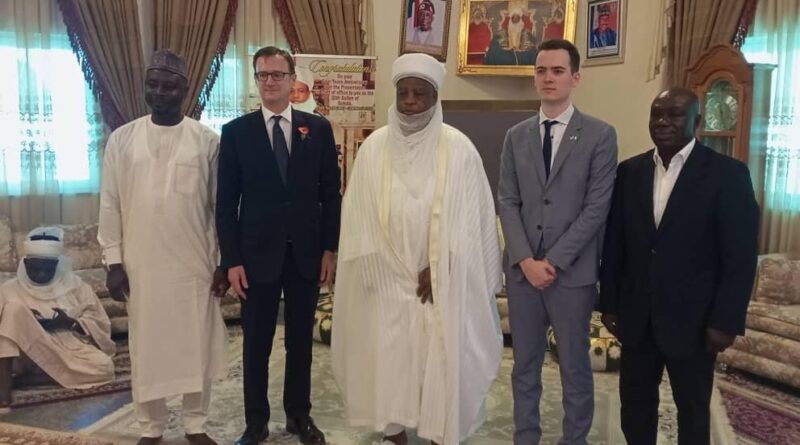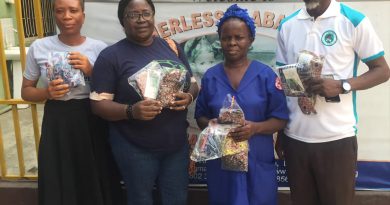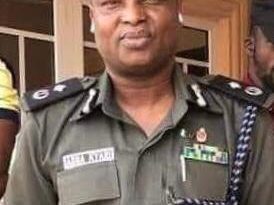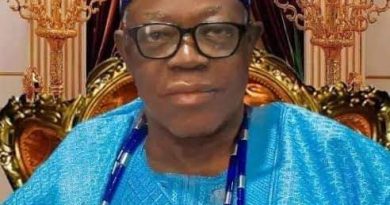British Envoy, Sultan Of Sokoto To Mediate In Niger Republic Impasse
By Bukar Bolori
The British High Commissioner to Nigeria, Dr. Richard Montgomery and the Sultan of Sokoto, His Eminence Muhammadu Sa’adu Abubakar III have had discussion on the prospects for a mediated resolution of the Niger Republic impasse.
The High Commissioner, who visited Sokoto State on 25 and 26 October, had during his discussions with the Sultan, acknowledged His Eminence’s role in promoting peace between people of different faiths in Nigeria, including through his positions as President-General of the Nigerian Supreme Council for Islamic Affairs (NSCIA) and Co-Chair of the Nigeria Inter-Religious Council (NIREC).
They also discussed the situation in Niger Republic and the prospects for a mediated resolution.
A statement on Friday by the Senior Communications & Public Diplomacy Officer, Foreign Commonwealth and Development Office, the British High Commission, Atinuke Akande-Alegbe revealed that other engagements during the High Commissioner’s visit included a thought-provoking meeting with representatives of civil society organisations, traditional leaders and academics who shared their insights on social, religious, economic and security issues.
Akande-Alegbe said to understand more about the state’s history the High Commissioner visited the Waziri Junaidu History and Culture Bureau, during which he described their archives of correspondence and official documents from Shehu Usman Dan Fodio’s time as a “treasure trove for historians”.
She noted that ahead of Remembrance Day, the High Commissioner paid his respects at the graves of 12 soldiers, British and Nigerian, who fell in the Second World War.
At the end of the visit, the British High Commissioner, Dr. Richard Montgomery, said: “It was an honour to be received by His Eminence the Sultan in Sokoto. We reflected on the deep and historical ties between the UK and Sokoto, including the links between the Sultanate and the British Royal Family. We had an insightful discussion on traditional leadership and social progress; inter-faith dialogue; national peace initiatives; and regional mediation. My visit was also an opportunity to deepen my understanding of the state’s contribution to the history of Nigeria, including by seeing the remarkable archives of the Sokoto Caliphate at the Waziri Junaidu History and Culture Bureau; a real treasure trove for historians. I had an engaging discussion with representatives of civil society, academia and traditional leaders, who shared their insights on issues including gender equality, insecurity and the economy. Ahead of Remembrance Day, it was important to pay my respects at the graves of 12 soldiers, British and Nigerian, who gave their lives in the Second World War.”




